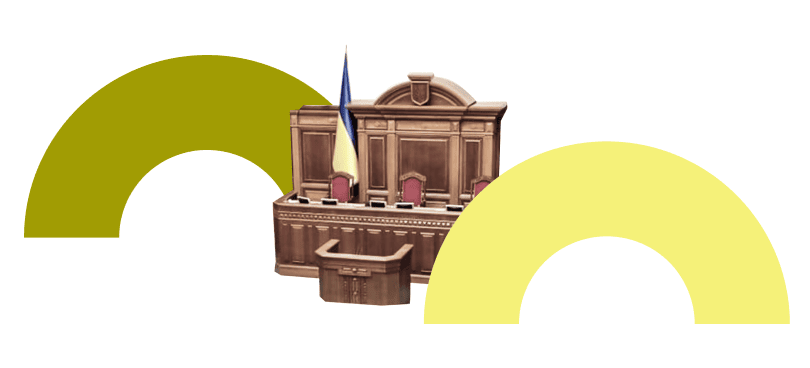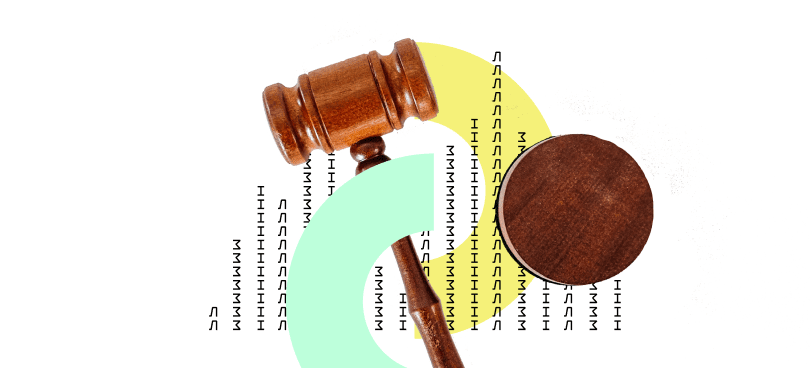Many countries of the world regulate the ethics of MPs by means of appropriate regulatory acts. So-called codes of ethics or codes of conduct are the most widespread. Their availability has a number of advantages: MPs understand and can objectively assess their own ethical behaviour and the behaviour of their colleagues. In contrast, the parliament has clear tools to influence discipline violators.
According to the Inter-Parliamentary Union Parline, as of January 2024, codes of conduct for MPs are in force in 85 countries worldwide. In the most general form, this document contains a list of ethical rules and standards of behaviour that a member of parliament must follow in their professional activity and sanctions for violating them. In practice, however, the format of this document may vary by country: in some countries, it is a detailed document with a list of rules, areas of their application and sanctions for violations, and in others, it is a summary of the main professional values and norms of conduct.
Some countries do not have a code of conduct as a separate law or other regulatory act approved by the parliament. Instead, the norms of ethical behaviour can be enshrined in legislation governing parliament’s activities.
Here are some examples of the implementation of codes of conduct in different countries:
- The USA. The code of official conduct for Senate members (the upper house of the US Congress) is part of the regulations. Besides, Senate members may be expelled for disorderly behaviour by two-thirds of the votes in accordance with the Constitution.
- Germany. The code of conduct for members of the unicameral parliament (Bundestag) is an appendix to the regulations.
- Great Britain. The Code of Conduct for Members of the House of Lords (the upper house of Parliament) is outlined in a resolution.
- Malta. The Code of conduct for Members of the House of Representatives (unicameral parliament) is outlined in the form of the law.
- Ireland. The Senate Code of Official Conduct (the upper house of parliament) is outlined in the resolution.
- Lithuania. The Code of Conduct of State Politicians (applies to MPs of the unicameral parliament — the Seimas, the president, members of the European Parliament, representatives of municipal councils and mayors) is outlined as the law.
- Poland. The Rules of Ethical Behaviour for MPs of the Sejm (the lower house of the National Assembly of the Republic of Poland) is outlined as a resolution.
- France. The Code of Conduct for Members of the National Assembly (the lower house of parliament) is a resolution of the Bureau of the National Assembly.
- Georgia. The Code of Conduct for Members of the Unicameral Parliament is outlined as a declaration.
These regulatory acts establish the rules of conduct for MPs both in the meeting halls and outside them. The list of violations established by the ethical codes of different countries may vary, but the following are the most common: improper behaviour, personal insult (in particular, of other high-ranking officials) or slander, prolonged absence from work, and other actions incompatible with the concept of parliamentary dignity.
Violations may be subject to the following sanctions:
- calls to order with entry into the parliamentary protocol, as well as official condemnation;
- deprivation of the right to speak, temporary suspension from participation in meetings;
- demand for a public apology;
- financial sanctions: penalties, salary cuts;
- loss of the mandate.
In practice, punishment for violating parliamentary ethics may be quite severe in some countries. For example, the Republican George Santos was expelled from the US Congress in December. One of the charges, in addition to embezzlement, was unethical behaviour: Santos lied to his voters about his past—career and education — which misled them. Expulsion from the parliament for unethical behaviour is also possible in India. A similar type of sanction also exists in Great Britain and Canada.
Compliance with ethical conduct may be monitored in different ways. Researchers single out three models existing in the world: 1) setting up an appropriate parliamentary committee that investigates cases of unethical conduct (self-regulation model); 2) setting up an extra-parliamentary judicial or quasi-judicial body that monitors compliance with ethical norms; 3) setting up an independent body accountable to the parliament and providing it with advisory assistance on ethical issues, but sanctions for violations shall be imposed by the parliament.
Although legislative regulation of ethical norms in MPs’ professional activities cannot completely eradicate some of their unethical, unprofessional actions, it makes it possible to hold them to account. In addition, approval of the code of conduct makes the work of the parliament more transparent (since the society has clear criteria for evaluating the ethics of certain actions of MPs) and increases its subjectivity, allowing it, as the main democratic institution, to distance itself from the consequences of scandals for the reputation that can be created by its individual members.















